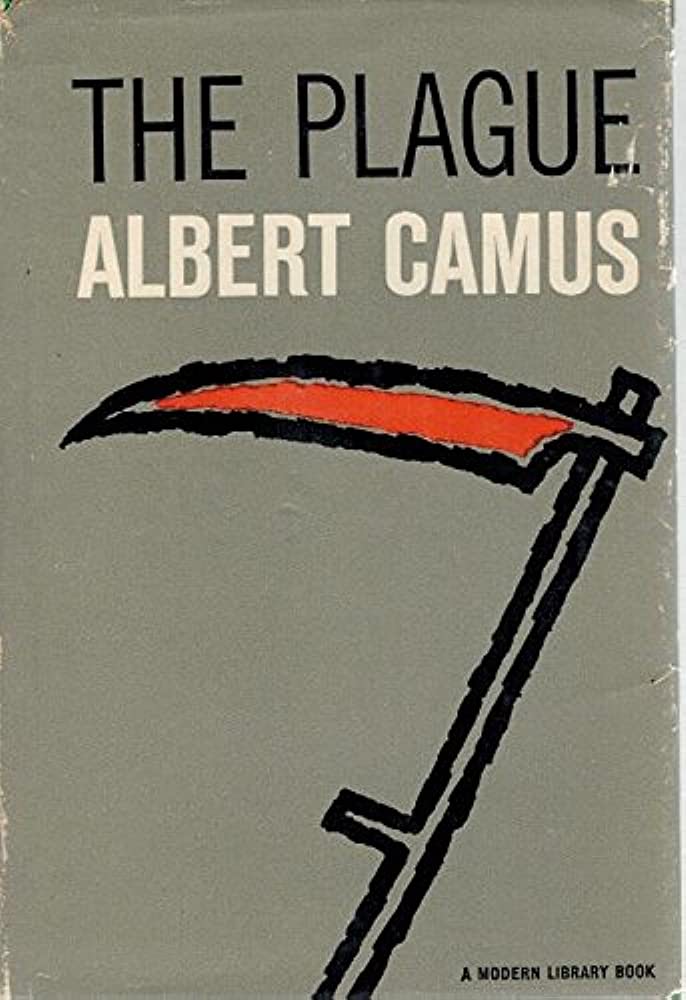April 5, 2023 by Eliza Krackeler (‘24)

Covid 19, often characterized by isolation and fear, can also be described as an era of great insight. When living through a time clouded with uncertainty, it nearly always seems impossible to pause for a moment to see what can be learned from the situation. Everyone, at all times, was thinking about the disease from a strictly numerical standpoint. They were always counting. Counting the dead. Counting the days that went by. Counting the minutes left on a Zoom call. The reason that that period of time remains a blur to most is because small moments weren’t appreciated. There were always thoughts of the future, of how much better it would be, of what the aftermath would look like. But now, looking back and looking inward, Covid 19 becomes an investigation into the true nature of humanity.
Behind in scientific progression but perhaps ahead in perceptive thought by modern-day standards is Dr. Rieux, the protagonist in The Plague by Albert Camus. At once a doctor and narrator of life’s events in Oran, Algeria, Rieux is a symbol of hope and comfort for the inhabitants of the city. When a plague strikes and forces a city-wide shutdown, the townsfolk turn to Rieux to reverse the curse. He works tirelessly for the health of his patients. But most importantly, he constantly looks for the moral path to salvation and an understanding of humanity on a deeper level.
Rieux’s belief is that a scientifically created antidote is not the only key to saving the city. The solution instead lies in finding the fundamental understanding of the human race and how each individual relates to their neighbor. He believes that the plague has “no place among our fellow citizens” as long as there are “honest clerks who cultivate honorable obsessions.” Even after witnessing countless deaths, Rieux still remains hopeful. The narrator’s tone here signifies Rieux’s resolve and undying optimism as he puts his faith in the human race in the belief that they will prevail together.
A moving story threaded with philosophical thought, this book will leave you in awe of every sentence and turn of phrase. It will change the way you view others, and encourage a more empathetic approach to the situations of other people. The Plague proves that we’re all connected, that we have something to learn from each individual we come across. Rieux knew that it made no sense to turn against each other and live each day strictly for our own survival, and the quicker everyone else realized that too, the better.

This article is excellent and shows a real understanding of Camus’s novel and expertly connects it to our understanding of the current pandemic.
Insightful and well written!